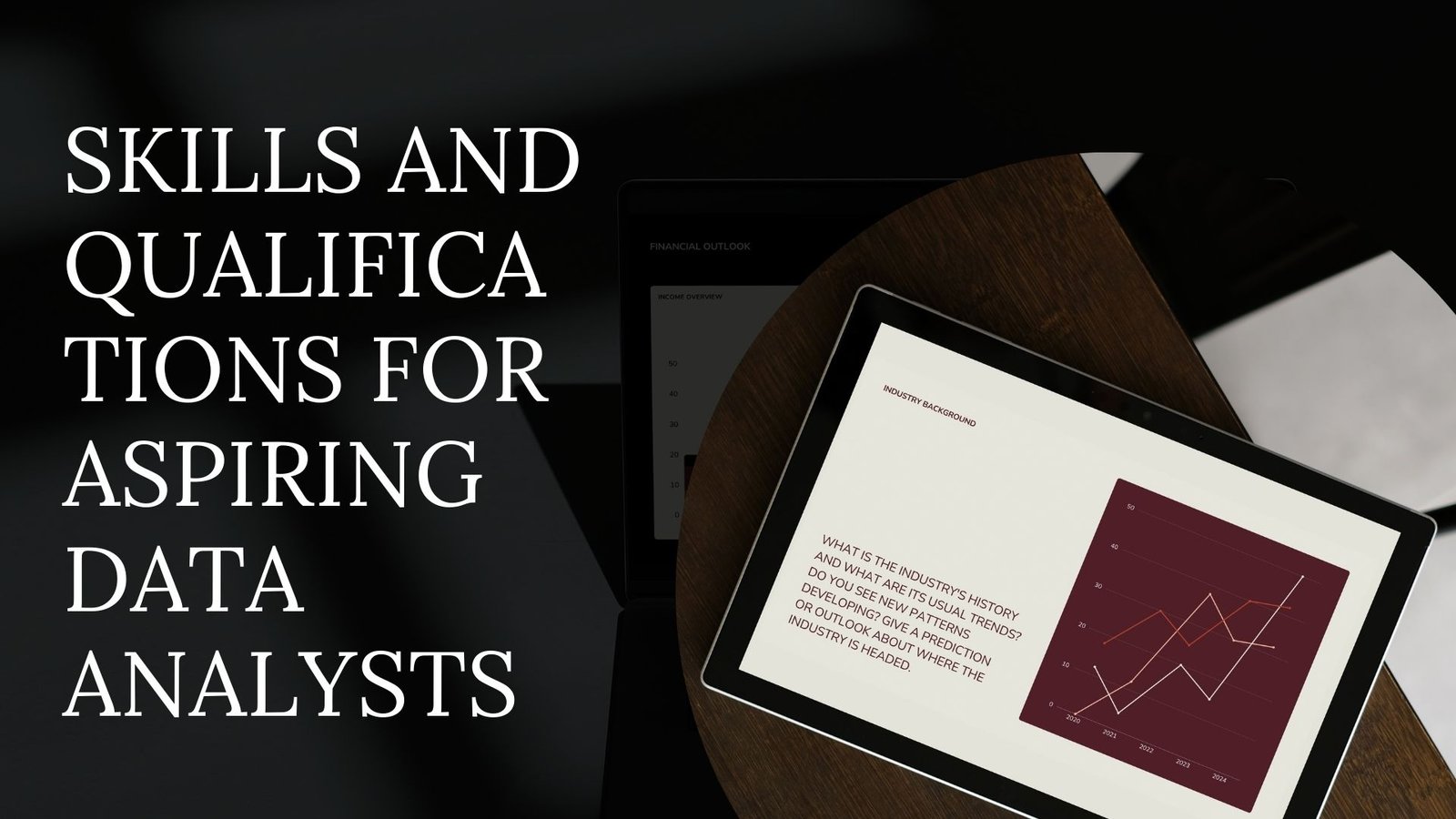Data analysis has become a cornerstone of decision-making across industries, driving strategies, and enhancing business outcomes. As companies increasingly rely on data to inform their decisions, data analysts are in high demand. But what skills and qualifications do aspiring data analysts need to succeed in this fast-growing field? This guide will cover the essential skills and qualifications you should focus on if you’re looking to master data analysis.
What is Data Analysis?
Data analysis involves inspecting, cleaning, transforming, and modeling data to uncover useful insights, draw conclusions, and support decision-making. It can range from simple tasks like summarizing sales data to more complex activities such as predictive modeling or machine learning.
To succeed as an aspiring Data analyst, you must develop a well-rounded skill set that includes technical abilities, analytical thinking, and a strong understanding of the business context in which you operate. Let’s break down the most important skills and qualifications you need to master to thrive in this field.
Essential Skills for Data Analysts
- Proficiency in Statistical Methods
A strong foundation in statistics is crucial for analyzing data accurately. You need to understand statistical concepts like mean, median, mode, variance, and standard deviation. Advanced topics such as hypothesis testing, correlation, regression, and probability distributions are often used to analyze data and make inferences. - Data Manipulation and Cleaning
Real-world data is rarely in perfect form, and it often requires cleaning, transforming, or reshaping before analysis can begin. Skills in data manipulation involve:
- Removing duplicates
- Handling missing values
- Filtering or aggregating data
- Normalizing or standardizing data
Excel and Spreadsheets Mastery
Despite the availability of advanced data analysis tools, Excel remains one of the most widely used tools due to its accessibility and functionality. Key skills include:
- Using formulas and functions (e.g., VLOOKUP, INDEX-MATCH, and pivot tables)
- Data visualization (charts, graphs, etc.)
- Conditional formatting and data analysis tools
1. Programming Languages: Python or RPython and R are two of the most popular programming languages for data analysis. They both offer extensive libraries and packages for data manipulation, statistical analysis, and machine learning.
- Python: Known for its readability and versatility, Python is used for data cleaning (with pandas), analysis (with NumPy and SciPy), and machine learning (with Scikit-learn).
- R: Particularly powerful for statistical analysis and data visualization, R has specialized libraries like ggplot2 and dplyr.
2. Data VisualizationPresenting data in a meaningful and accessible way is essential for conveying insights to stakeholders. Key tools and techniques you should know include:
- Tools: Tableau, Power BI, and even Python libraries like Matplotlib or Seaborn
- Techniques: Creating clear charts (bar, line, scatter), heatmaps, and dashboards that make trends and patterns easier to understand
Why it’s important: Data visualization helps simplify complex information, making it easier for non-technical stakeholders to grasp key insights and make informed decisions.
- Business and Domain Knowledge
A successful data analyst doesn’t just understand data—they also understand the business context in which they work. Having industry-specific knowledge allows analysts to interpret data in a way that is both relevant and actionable. - Problem-solving and Critical Thinking
A data Data analysis job often involves translating raw data into actionable insights. This requires strong critical thinking and problem-solving skills. You need to ask the right questions, form hypotheses, and use data to test these hypotheses. - Communication Skills
Even the most sophisticated analysis is useless unless it is communicated effectively. Data analysis must present their findings clearly and concisely, whether through written reports, presentations, or data visualizations.
Educational Qualifications
While specific qualifications may vary depending on the industry or organization, the following are the most common educational requirements for aspiring data analysts:
- Bachelor’s Degree in a Relevant Field
Most data analyst roles require at least a bachelor’s degree in a related field. Common degrees include:- Computer Science
- Mathematics or Statistics
- Engineering
- Economics or Business Analytics
- Information Technology
- Certifications
Although not always required, certifications can enhance your credibility and demonstrate your commitment to developing your skills. Some highly regarded certifications include:- Microsoft Certified: Data Analyst Associate: Focuses on Power BI and Excel for data analysis and reporting.
- Google Data Analytics Professional Certificate: Offers a comprehensive overview of data analysis using tools like Excel, SQL, and Tableau.
- Certified Analytics Professional (CAP): An advanced certification for those aiming to demonstrate expertise in analytics.
- Master’s Degree or Specialization
For those seeking career advancement or specialization in more technical areas, pursuing a master’s degree in data science, business analytics, or a related field is a valuable investment.
Why it’s important: A master’s degree provides deeper knowledge in areas such as machine learning, advanced statistics, and big data technologies, helping you become more competitive for senior roles.
Additional Qualifications
- Soft Skills: Time management, teamwork, attention to detail, and adaptability are all important for Data analysis who work in dynamic, collaborative environments.
- Hands-On Experience: Practical experience, whether through internships, personal projects, or freelance work, is essential for building analytical expertise and demonstrating your capabilities to potential employers.
Read also: Need Online Assignment Help for Computer Science?
Conclusion
Mastering data analysis requires a combination of technical skills, business acumen, and continuous learning. As the demand for data analysts grows, building a strong foundation in statistics, programming, data visualization, and communication will set you up for success. Whether you pursue formal education, certifications, or self-study, the key to mastering data analysis is consistent practice and staying up-to-date with the latest tools and trends. By honing these essential skills and acquiring the right qualifications, such as enrolling in a data analytics certification course in Noida, Delhi, Mumbai, and other parts of India you’ll be well on your way to a successful career as a data analyst.



